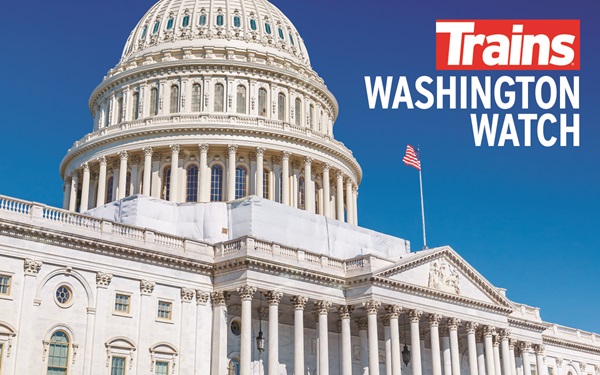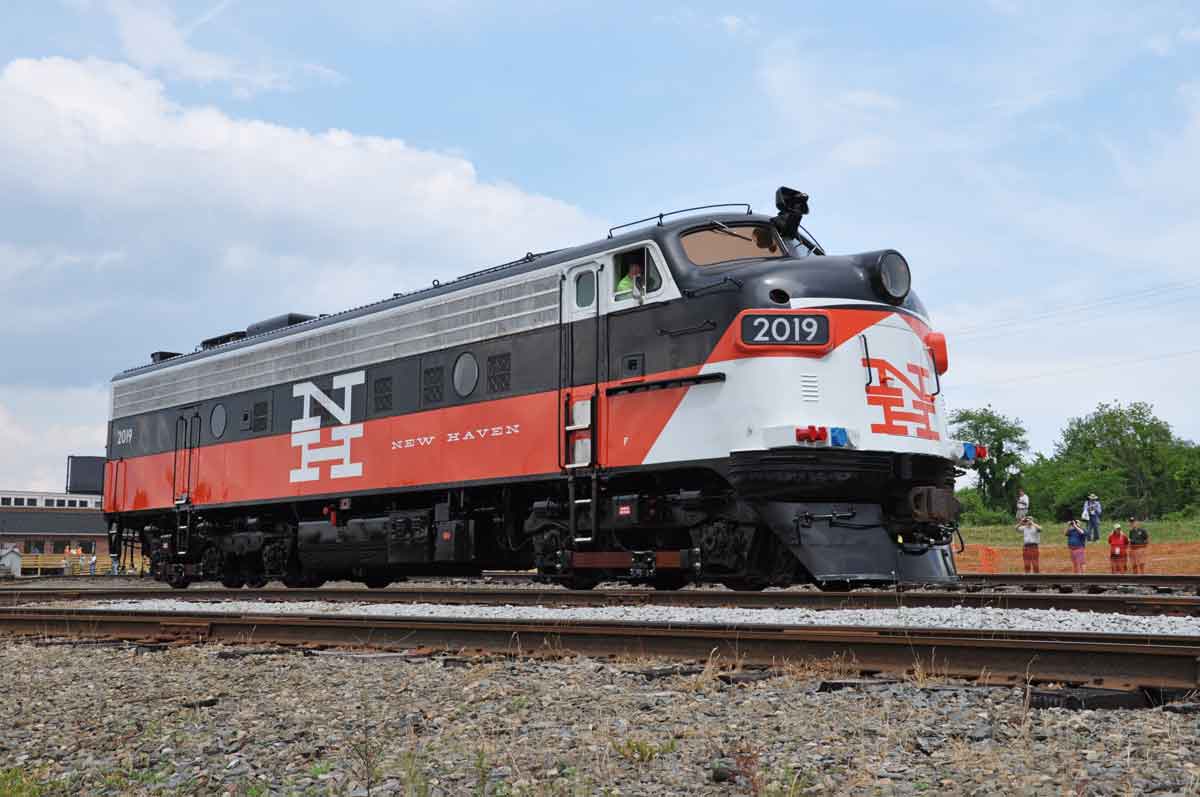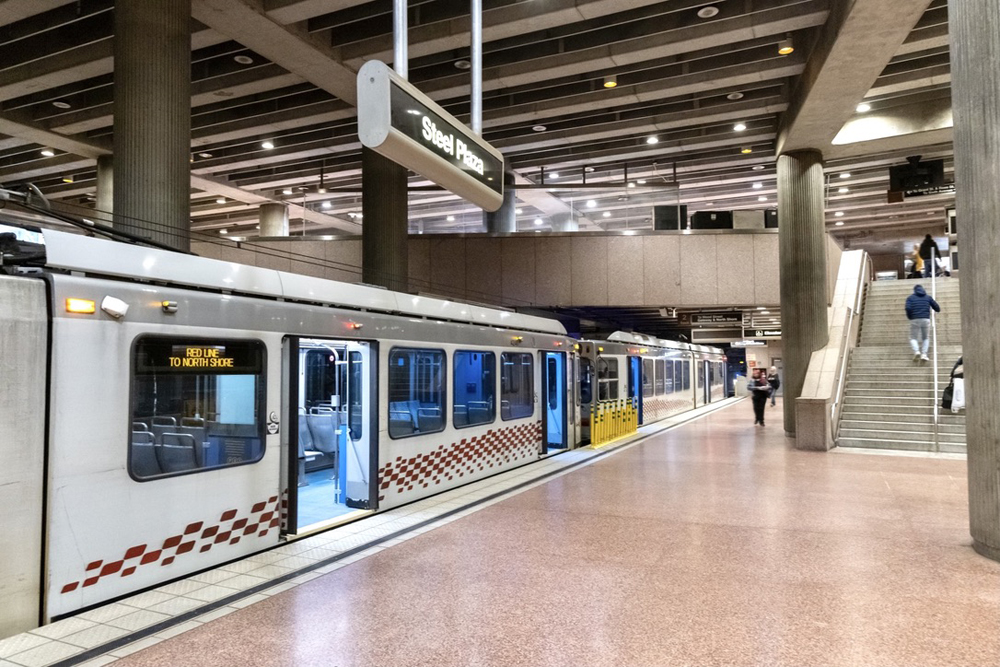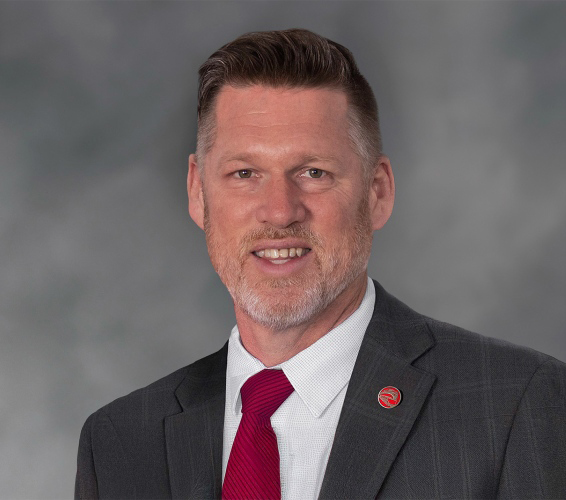 WASHINGTON — The House of Representatives’ vote on appropriations for the Department of Transportation, which would include a 64% cut in Amtrak funding as well as a prohibition on federal funds for California’s high speed rail project, is still pending. It had originally been reported as on the schedule for Wednesday [see “House set to vote on spending bill ….,” Trains News Wire, Oct. 31, 2023].
WASHINGTON — The House of Representatives’ vote on appropriations for the Department of Transportation, which would include a 64% cut in Amtrak funding as well as a prohibition on federal funds for California’s high speed rail project, is still pending. It had originally been reported as on the schedule for Wednesday [see “House set to vote on spending bill ….,” Trains News Wire, Oct. 31, 2023].
The House Rules Committee did advance the bill on Wednesday, setting rules for consideration by the full House and determining a package of some 74 amendments to be included. Some 203 amendments had been submitted, although some of those were subsequently withdrawn. The amendments advanced range from a slight increase in Consolidated Rail Infrastructure and Safety Improvements grant funding to efforts to cut Transportation Secretary Pete Buttigieg’s salary to $1 and deny him the use of a government-leased vehicle.
The House meets again today.
The Senate, meanwhile, on Wednesday passed a package of appropriations bills totaling almost $280 billion, including one covering the Department of Transportation, Politico reports.
American Public Transportation Association CEO Paul P. Skoutelas applauded the Senate vote in a statement, saying it fully funds the transportation provisions of the Bipartisan Infrastructure Law, incuding $21.1 billion for public transit and $16.7 billion for passenger and freight rail.
This funding, Skoutelas said, “will make public transit and passenger rail faster, more modern, frequent, and reliable while tackling climate change, advancing equity, and providing communities with sustainable mobility choices.
“However, the U.S. House of Representatives’ THUD Appropriations bill cuts public transit investment by $2.3 billion, slashing [Capital Investment Grants] funding to the lowest level in at least two decades. These cuts would cost America more than 100,000 jobs.
“We urge the House of Representatives to similarly honor the commitment of the Bipartisan Infrastructure Law and fully fund public transportation investments in the FY 2024 THUD appropriations bill.”














Isn’t that the same tactic they proposed on the Sec of Defense cutting the pay to a $1.00? No real ideas just the continued carnival sideshow their Party has adopted that leaves even their former Party leadership in disbelief. They use this same tactic on the State level too undermining Governors in their gerrymandered legislatures to deny appointments to departments. This is how Democracies die!
The U.S. is a Federal Constitutional Republic.
Thank you Charles for the clarification. I was always under the impression that the Packers were owned by the City and/or County. Nothing new about wanting funds to update stadium as in Milwaukee and any other city. If a private business wants to update their buildings or facilities, they pay for it. The public does not fund it. Why are stadiums different?
Because stadiums generate sales and income tax revenue for the municipality/state. Transit doesn’t. It’s no mistake that you will find a Roman hippodrome or coliseum in various cities in their empire. They collected revenue on those stadiums back then. Taxation of general entertainment is a boon for local officials.
I want to post another article on the federal government funding local and private transit operations and this is from several years ago. I orginally was born in NYC in the borough of Queens. When I was growing up there, our borough was served by 5 private bus companies that were owned and operated by 2 very powerful and rich familes. For a number of years business was good and profitable. However in the lates 80s and 90s, as things changed, ridership dropped off and the buses themselves were breaking down and wearing out. Enter NYC and started handing out subsidies to these bus lines and also giving them money to buy new buses almost every year as well as helping fund salary increases to the workers. NYC was giving out money to private transit companies under the guise of the Federal Government giving that money to the city. This went on for many years until finally NYC decided it was time to buy out these private companies and merge their lines with the MTA operated lines and end giving public funding to companies that were privately owned and operated. Classic example of private companies be it transit or other businesses getting help and funding from the government be it federal or local. It comes under the heading of what some would call corporate welfare and a practice which has to stop. I’m pretty sure ride share services like Lyft and Uber don’t get any government funding or subisdies and they play an an important role in moving millions of people each day. Even the local car services or yellow taxicabs don’t get funding and they too are part of the transportation network. Take delivery services like FedEx and UPS, same here no government or public funding. True savings and economy can be achievied but it must done in a way that benefits all parties and sets where the priorities mus be directed to. Just to go on a mad plan and slash and cut whereever you please isn’t going to work. Even managing and running a househild or family takes careful consideration and planning and good financial decisions. Take the banks, for example Banks are very careful and choosy where they spend and loan their money to and make sure that they will get paid back by the folks they lend their funds to and in other cases will not lend or fund money to someone or something that seems foolish and nonessiantial and yields no return or savings. Our federal government plus many a local government is not very smart when it comes to managing their finances or assets. While we are at it, let;s cut out the billions spent on foreign aid to these nations who pretend to be our friends and allies and give us lip service but mock us and only want our money. After all who in the world is helping us in our troubles and problems right now. All our so called allies and friendly nations turn their backs on us and don’t really stand with us but just laugh at us. AMERICA FIRST NOW AND ALWAYS
Joseph C. Markfelder
Good point raised. However while it is not federal money or funds being spent, what about cities where the local governments advance funding for construction of sports arenas and stadiums and it is public money while these rich millionaires who own these teams don’t pay a cent for the construction of these collossal structures. No public money of any kind be it federal or local should be spent or given for the construction these these expensive playgrounds. Here in Orlando, both the mayor and the City Council voted to use the money taken in by tourists visiting the city and its attractions on expanding and improving three entertainment venues. One group favored using the money to improve the streets, the traffic issues, improve transit and build affordable housing for those in need. They were voted down and out. My point is that any government money or funding that comes in should be used on essential services that benefit the citizens of that city or town. Not give any funding to private enterprises or companies especially sports teams and their so called need for new stadiums and also any entertainment or concert venues. You want it or think you need it, build it yourself with your money, not public money. By the way, our “brilliant” governor here in Florida is guilty of was just mentioned in the previous post. He has been taking federal funds including the money that he got during the Covid pandemic and used iit to balance the state budget lower taxes and even use some of it for certain private ventures and he has tried to cover it up but is a master of deception and has gotten away with it. Like Congress , he has a captive party of Republicans in the State Assembly and Senete who do his bidding and rubber stamp all his actions. The few Democrats that stand up to this dictator governor don’t stand a chance and are quickly silenced or shot down. In the past year he has also recklessly fired two Attorney Generals because they tried to do things legally and serve the law in the correct manner but according to his law werea threat so they had to go which these actions are being challenged. Getting back to the main subject For private manners and business, keep funding private, while public concerns must stay public. Also remember seperation of local and state governments and the federal government
Joseph C. Markfelder
Totally agree with you Joseph on Public sports facilities. No other business has the government build there facilities. I like the Green Bay, Brown County, Wisconsin model. The Packers are not threatening to leave if they don’t get a new public funded stadium, since the City and County own them.
Nice thoughts, Anthony. There has been public subsidy for Lambeau Field, probably to a lesser extent than other stadiums.
The Packers are a private corporation with widespread stock ownership throughout the community. They are not owned by either city, Green Bay or Ashwaubenon, nor by Brown County.
In 1996 with my strident opposition voiced to whoever would listen (no elected official did listen), public funds were allocated to build the Milwaukee baseball stadium. Now MLB wants three times the original construction cost for renovations, largely from public funds. We’re stuck with it. The time to say “no” was 1996 before the thing was built.
I oppose over-paying SecDOT. A dollar a year is too much.
As for cuts to local transit, those would be extremely inconvenient, crippling at a time of rising costs and declining farebox revenue. However local transit is not a federal responsibility. The reason states and localities look to Washington for funding is that states and localities need to actually pay their costs out of actual tax money whereas Washington prints money.
A state or locality that “balances” its budget out of federal borrowing is committing legalized accounting fraud.